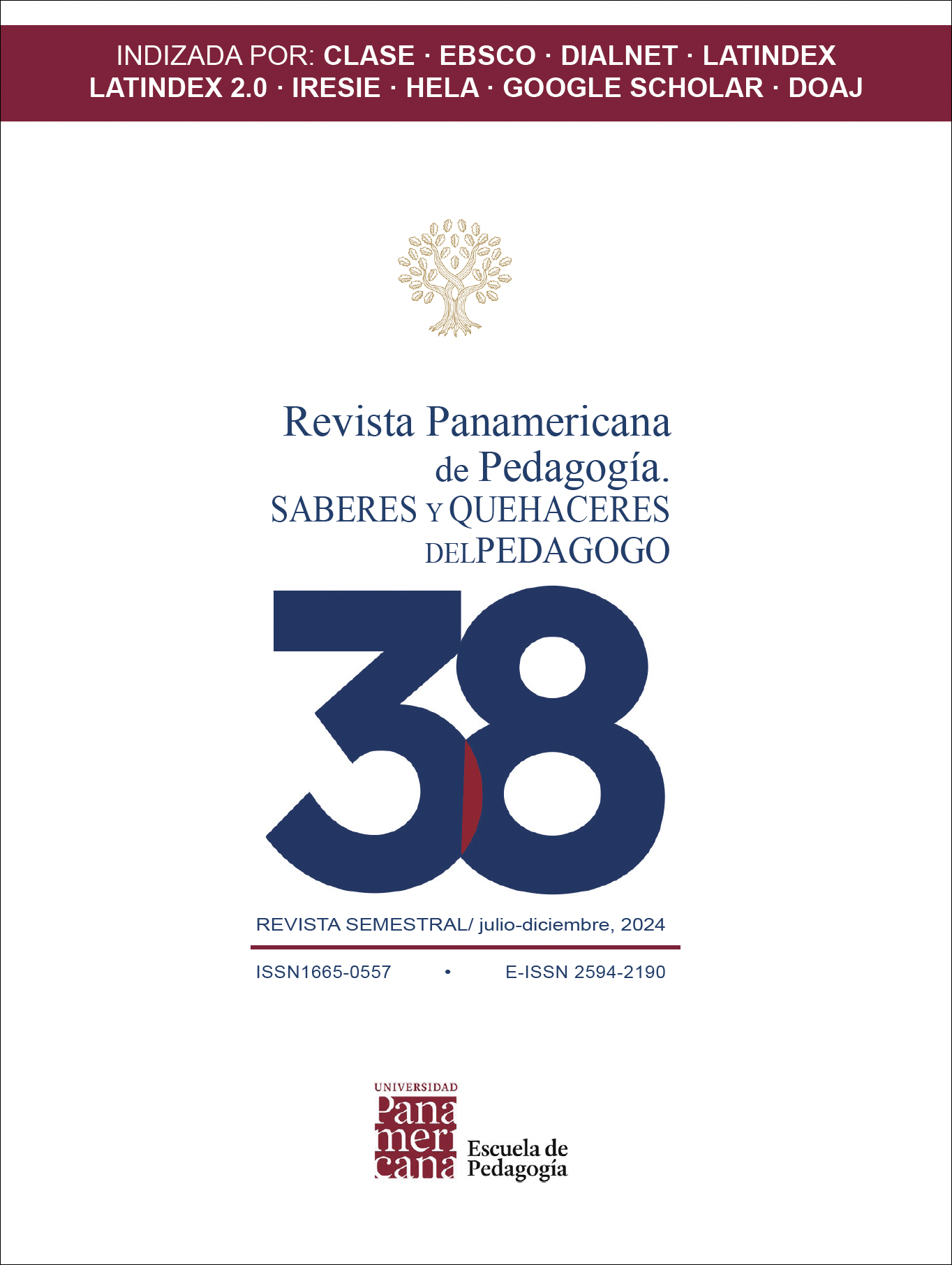Theoretical approach to the donation of meaning in the educational praxis of Physiotherapy
Published 2024-06-29
How to Cite
Copyright (c) 2024 Revista Panamericana de Pedagogía

This work is licensed under a Creative Commons Attribution-NonCommercial-ShareAlike 4.0 International License.
Downloads
Altmetrics
Abstract
The present epistemic becoming runs, regarding some theories and transversal approaches in educational sciences in the construction of the theoretical and epistemological fabric from the investigative problematization between corporeality and corporality, since it has been possible to question the fundamental theoretical foundations of kinesthesia (physiotherapy) in the conception of healing, being interested in the epistemologies of the body that thinks, and that also feels. And with this, if such epistemic load finds the first preparations for a hermeneutical-dialogical methodological journey that overturns the categorical assumptions that must emerge in the possibility of a theoretical construct of the donation of meaning in the educational praxis of physiotherapy. For this, the guiding theoretical referents that supported this onto-epistemic approach from monist-positivist currents to currents of subjectivity: Gallego (2007), Rancière, (2016) Bourdieu (2002), Merlau-Ponty (1994), Morin (1998), Daniels y Worthingham (2002). All of them constitute the scaffolding of categorical meanings based on their approaches, involving the challenges of teaching and learning from the particularities of the field of kinesthesia or physiotherapy. In this course, a transfer is proposed that goes from methodological monism in the teaching of physiotherapy reduced to techniques, focused on the corporeity of the patient subject to the symptom, diagnosis and agreed treatments; to an epistemic turn that places the relationship of encompassing corporeality beyond technique, by understanding and recognizing in the Pedagogy of subjectivity that health-disease is intersubjectivity patient-participant-student-participant.
References
- Álvarez, A. R. (1995). Educación para la salud. México: Editorial Manual moderno.
- Barrientos, B. V. (2009). Opinión escrita sobre el modelo de evaluación en fisioterapia para el Grupo de Cuerpo y Movimiento Humano de la Corporación Universitaria Iberoamericana. Datos en bruto no publicados.
- Bourdieu, P. (2002). Campo de poder, Campo intelectual. Buenos Aires: Montressor.
- Bunge, M. (1978). Causalidad: el principio de la causalidad en la ciencia moderna. Buenos Aires: Eudeba.
- Daniels, & Worthingham (2002). Pruebas funcionales musculares. Madrid: Marban.
- Foucault, M. (1968). El nacimiento de la Clínica. Una arqueología a la mirada médica. México DF: FCE.
- Ferri, A., Antón, M. V., & Avendaño, J. (1997). Fisioterapia: un concepto dinámico. Fisioterapia, 19(4): 248-253.
- Freud, S. (2017). El malestar en la cultura. Madrid: Akal.
- Gallego, T. (2007). Bases teóricas y fundamentos de la fisioterapia. Editorial Médica Panamericana.
- González, M. L. (1993). Proyecto Docente de Fisioterapia General. No publicado. A Coruña: Universidad de A Coruña. Facultad de Ciencias de la Salud.
- Iglesias, M. N. (Nueva Escuela Lacaniana) (2005). Los fundamentos epistemológicos. Maracaibo.
- Kerlinger, F. N. (1975). Foundations of behavioural research educational and phychological inguing. Londres (Reino Unido): Halt Rinehar and Winston.
- Llinás, R. (2003). El cerebro y el mito del yo. Bogotá: Editorial Norma.
- Martín, L. (1991). Diez lecciones de Epistemología. Madrid: Akal.
- Martínez, M. (2013). La investigación cualitativa etnográfica. México: Trillas
- Merleau-Ponty, M. (1994). Fenomenología de la percepción. Barcelona: Planeta.
- Morin, E. (1998). Introducción al pensamiento complejo. Gedisa.
- Moroño, J. (2013). Desarrollo Científico de la Fisioterapia en España. Estudio de los artículos publicados en la revista Fisioterapia (1979-2006).[Tesis de Doctorado. Universidad de Sevilla]. https://idus.us.es/bitstream/handle/11441/58123/S_TD_PROV58.pdf;jsessionid=1F74CDC5DBD38A909B3C07FE1B710591?sequence=-1
- Popper, K. R. (1980). La lógica de la Investigación científica. Bogotá: Editorial Norma.
- Rancière, J. (2016). El Maestro Ignorante. Cinco lecciones sobre la emancipación intelectual. Barcelona: Laertes.
- Stufflebeam, D. L., & Shinkfield, A. J. (1993). Evaluación sistemática. Guía teórica y. Barcelona: Paidos.
- Saavedra Hernández, M. (2012). Fisioterapia en la cervicalgia crónica, manipulación vertebral y kinesiotaping. [Tesis de Doctorado). Universidad de Granada]. http://hdl.handle.net/10481/22259
- Salvat Salvat, M. I. (2008). Aplicabilidad del vídeo en el método de resolución de problemas en fisioterapia. [Tesis de Doctorado. Universidad de Tarragona]. http://hdl.handle.net/10803/8939
- Serra Llobet, P. (2015). Análisis de las Enseñanzas de pos grados para fisioterapeutas tras la Adaptación Universitarias del espacio europeo de educación superior. [Tesis Doctoral. Universidad Internacional de Catalunya]. http://hdl.handle.net/10803/293781


